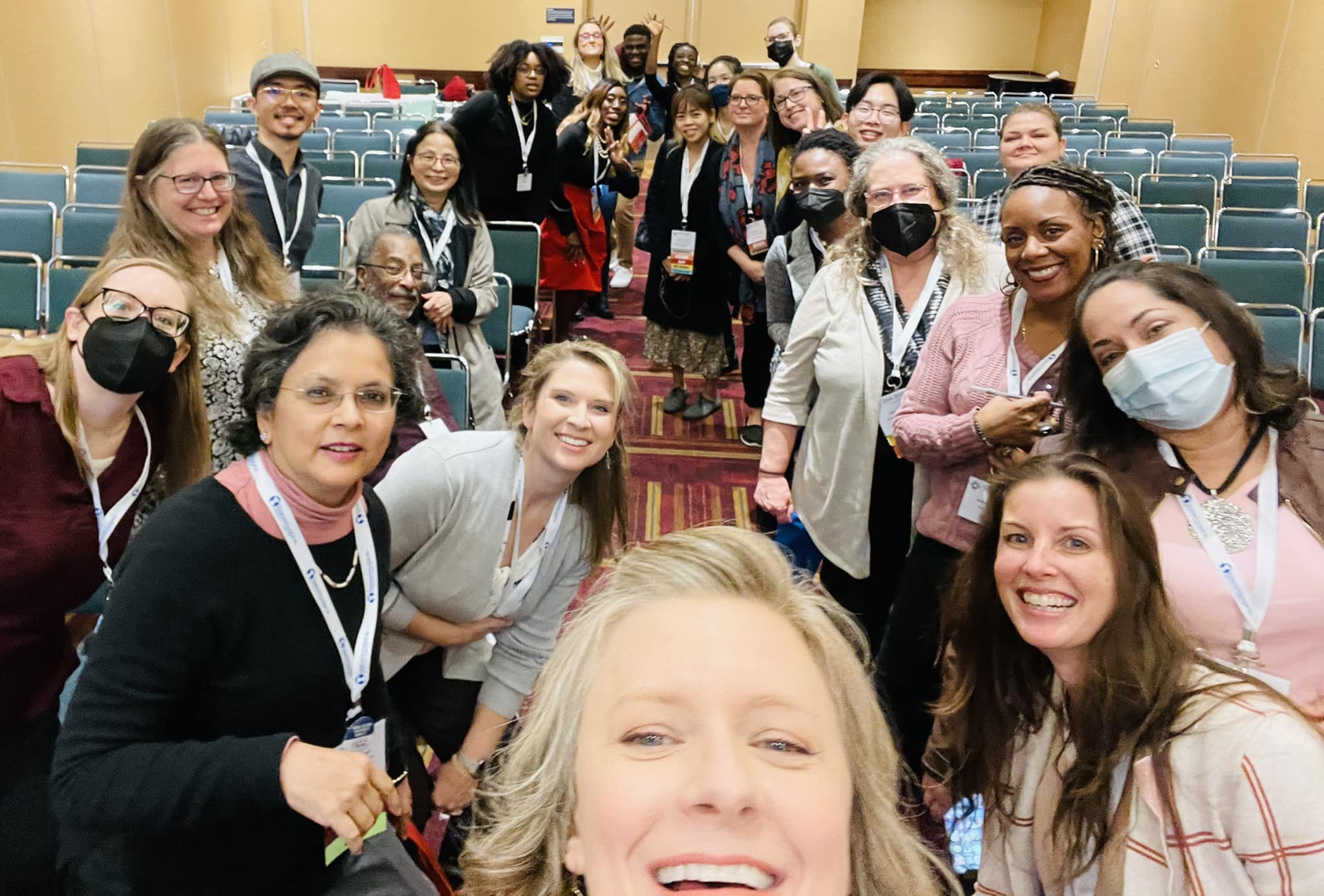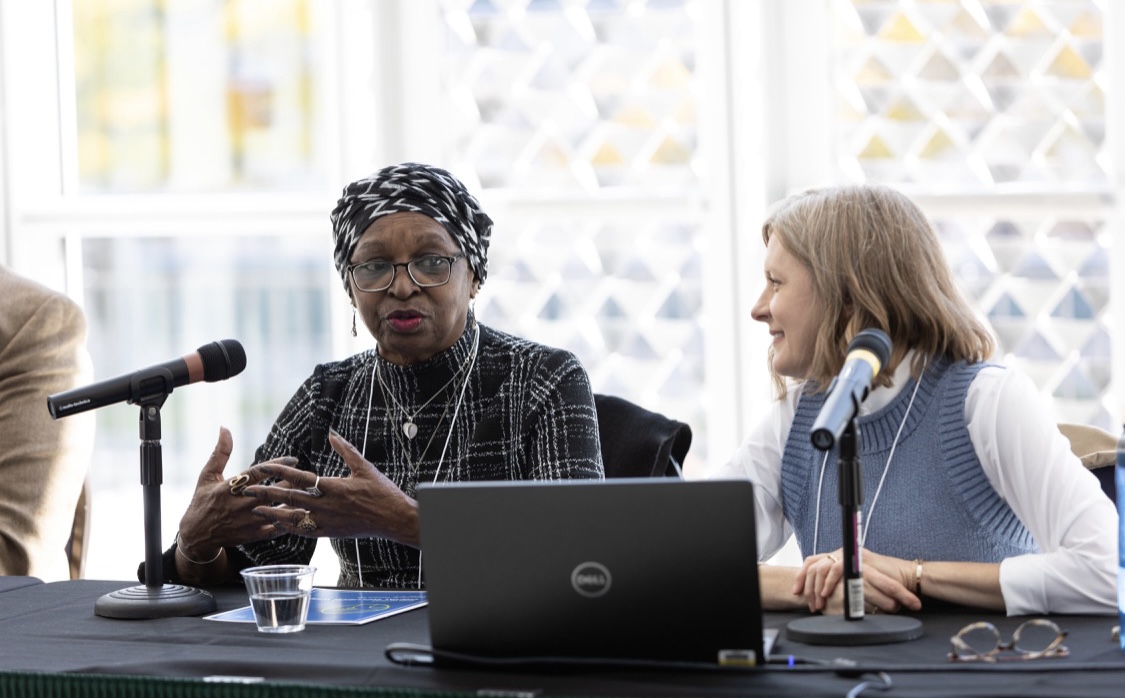Bridging the Resident-Research Divide in Detroit
"I am not a traditional academician. I think of myself as a person working to help foster "University In-Reach" so Detroiters can leverage resources at Wayne State to their benefit. I want to help create a path for people to reach in and connect with our community of Warriors who can be allies for them. Many of us want to use our research to help improve lives in Detroit, but don't always know where to start."
Carrie Leach, PhD, MPA, IOG Research Assistant Professor
Research matters. Research studies investigate the core issues of our urban environment, such as understanding the causes of health disparities that put older African American adults at higher risk of many diseases than their White counterparts. This type of research requires the participation of minority persons who have traditionally been hesitant to volunteer.

"Having a conversation is a good place to start," said Dr. Leach. "First we need to hear what people have to say about participating in research. Listening is step one, so we can understand where a person is coming from. Then we can have open and honest conversations about local concerns, what we have to offer as researchers, and how we might problem solve together, that's the next step. Those conversations can be transformative if they're done right, and they're an opportunity for imagining possible partnerships."
Dr. Leach is the project lead of a new two-year, $250,000 award from the Patient-Centered Outcomes Research Institute, known as PCORI. Called "Bridging the Divide: Fostering Partnerships for Urban African-American Aging Research," the project's goals are ambitious, with the ultimate goal of increasing older adults' participation in and partnership with research that matters to them:
- Convene an Aging Research Council (ARC) made up of older Detroit residents, researchers, and local community health and aging advocacy organization members
- Adapt, pilot, and refine an age-friendly guide for using computers and connecting virtually
- Deliver technology and the guide to 8 older adults to be part of the virtual ARC meetings
- Adapt and deliver a research literacy curriculum tailored to aging related research
- Deliver adapted BYC curriculum to ARC
- Facilitate interactive processes and dialogue to prioritize research needs relevant to older African American populations and produce a report that summarizes the project
- Disseminate the tools, research priorities, and project summary report
Ambitious community goals don't deter Dr. Leach . . . they energize her. Her doctorate (from WSU) is in health communication. For several years, she has led the Community Engagement Core for CURES (Community Engagement, Center for Urban Responses to Environmental Stressors ) and is Associate Center Director of Community Inclusion for CHECK-UP (Center for Health Equity and Community Knowledge in Urban Populations ).
"I feel this project is a great fit for me personally. I am dedicated to conducting research that has a social justice component," she said. "And I am committed to reducing the communication inequities that play a role in health disparities." At CURES, she worked with community partners to co-create events and materials with health-protecting information that have been disseminated to more than 5,000 Detroiters through face-to-face seminars and print and digital media.
PCORI awards focus on using existing evidence-based tools and approaches to deepen the impact of the project. "They don't want you to reinvent the wheel," Dr. Leach said. Her team will adapt an existing guide on how to use a tablet to connect to the internet so it can be more useful to older Detroit residents. They will also adapt an existing curriculum for building the capacity for research participation to apply it more specifically to older African Americans. Every step of the project relies on multi-directional communication between project staff, research partners, community organizations and older adults. Eight older adults will receive a computer, internet access, the manual, and compensation for attending monthly meetings. They will supply regular feedback that can be incorporated to improve usage and outcomes.
Improving older Detroiter's access to and comfort with online interactions has benefits beyond virtual participation in research projects. Using Zoom for get-togethers or to attend a virtual church service increases social interactions and reduces loneliness and depression. It enables telehealth check-ups that can increase overall health and well-being. These benefits are critical in Detroit, one of the most impoverished cities in the nation with one of the lowest rates of internet connectivity. This "digital exclusion" contributes to older African American's dramatic lag behind other groups in health outcomes and participation in research.

Dr. Leach wants more Detroit residents to benefit from "in-reach." Outreach is unidirectional and offers the community what someone
thinks it needs. In-reach creates a way for community members to reach into a resource network (like Wayne State) and extract for themselves what they know they need. Dr. Leach is impressed by the in-reach savvy of Dell Stubblefield, a senior activist, resident of HOPE Village, and community engagement specialist for Hope Village Revitalization, and aims to foster more of it.
Dell knows how to leverage her connections to get resources to her community that are matched to their needs. "During the pandemic, she helped us distribute hundreds of the 1,700 free tablet computers we got for older Detroiters. She also helped to shape the PCORI contract by actively participating in my pre-application meetings with community members and aging advocates," Dr. Leach said. "Dell knows who to get needs met. I'd like to show more people how to 'in-reach,' especially here, to our university. Being a resource to the community is a major part of Wayne State's mission."
In addition to Wayne State, Bridging the Divide project collaborators are: the Institute of Gerontology, Detroit Food Policy Council, Village of Oakman Manor of Presbyterian Villages of Michigan, Hope Village Revitalization, Denby Neighborhood Alliance, Oakland County Cancer Action Council, Karmanos Cancer Institute, CURES and CHECK-UP.